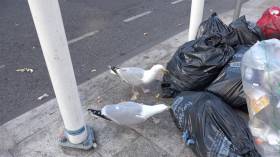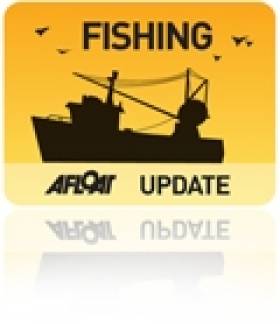Displaying items by tag: pest control
A leading pest control provider says it has recorded a significant increase in callouts to deal with seagulls among other pest birds so far this year.
Rentokill is now is warning the public to be wary of the aggressive birds during the warm summer months.
The company says it has experienced a significant increase in callouts (86%) to deal with infestations of pest birds during the period of January to June this year, compared to the same period in 2018.
Dublin accounted for the most callouts during this period, with 42% of all callouts to the capital. Kildare (13%), Sligo (6%) and Louth (5%) were next in line.
July is a part of a seagull’s nesting season, when the marine birds are the most protective of their eggs and chicks, and at their noisiest and most aggressive.
This is also the period of time when they are most likely to attack members of the public.
The dangers which seagulls present are not limited to their antisocial behaviour of attacking people and raiding waste bins in search of food, Rentokill says.
The droppings of seagulls and other pest birds contain bacteria including E.coli and salmonella, and can lead to the spread of infections through surface contamination, inhaling bacteria from dried droppings — or being transferred by bird mites, which can bite both people and birds.
Richard Faulkner, advanced technical field consultant for Rentokil, said: “We encourage members of the public to treat seagulls with caution and keep their distance from them where possible, as they are at their most aggressive at this time of year.
“As the weather improves, and people start spending more time outside this summer, this is also the period of time where people and seagulls are most likely to cross paths.
“To discourage the presence of seagulls and other pest birds from your home or business, you should ensure keep any possible food sources well hidden.
“Another important step is to make sure bin lids are secure and rubbish bags are not left in the open, as gulls have sharp beaks that will make short work of bin bags.”
Pest Control at Salmon Farms 'Insufficient'
Scientists have expressed disappointment after the publication of a report into strategies for improved pest control in Ireland's salmon farms.
According to The Irish Times, experts from Inland Fisheries Ireland (IFI) said the findings of the National Implementation Group were "insufficient to protect wild salmon and sea trout".
The report highlighted failures among a number of sites in the west of Ireland in controlling sea lice during the crucial spring period.
IFI says it is "a matter of priority" to review the location of salmon farms to ensure the protection of wild salmon and sea trout "while also meeting the needs of the commercial fish farm sector".






























































